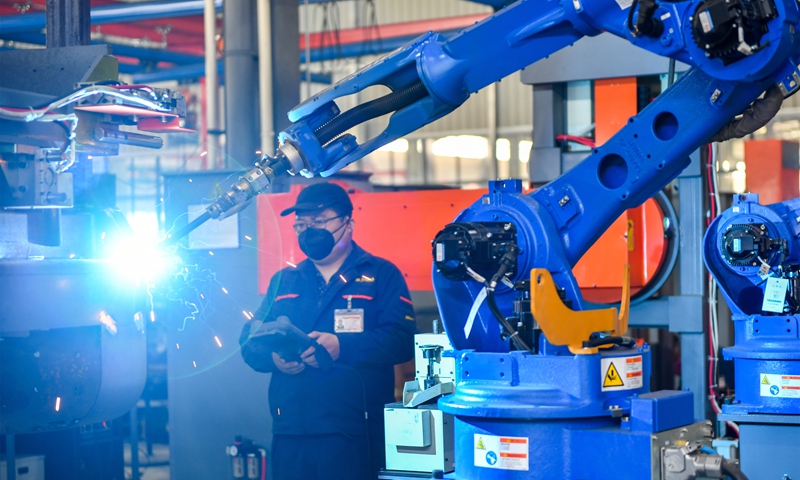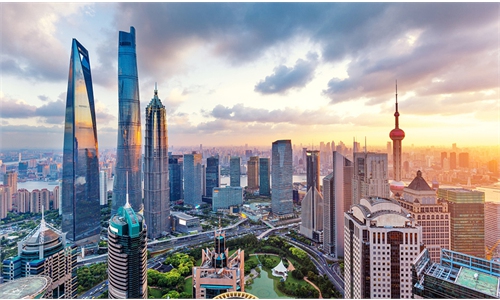KUALA LUMPUR: An Associate Researcher at the Institute of China Studies, Faculty of Arts and Social Sciences, Universiti Malaya described Malaysia as being in a dire situation for failing to end pro-Bumiputera policies and rampant corruption.
Writing in the South China Morning Post in conjunction with the 50th anniversary of China-Malaysia relations, Dr Michael Tai described China's investment will not cure the cancer that plagues Malaysia's economy.
"Malaysia's problems stem from corruption and poor governance, which are closely related to race-based privilege. Outsiders are in no position to fix it.
"Malaysia's progress continues to be hindered by affirmative action programs that give priority to the Malay majority over the Chinese and Indian minorities," added the Universiti Malaya Associate Researcher.
"This policy was supposed to end after 20 years but was replaced by the National Development Policy, which maintains the privileges of the bumiputra; the Malays regard it as a right," added Tai.
According to Tai, the pro-Bumiputera policy has also created an extreme state of corruption.
"Systemic corruption is so entrenched, that it is almost impossible to eradicate it without eradicating race-based privilege. In the last five years, the government has lost approximately US$59 billion to corruption, which Anwar considers a "major cancer" that weakens the economy, erodes morale, and reduce confidence," Tai wrote again.
He also cited former Minister's view Trade and Industry (MITI), Tan Sri Rafidah Aziz who expressed regret at the "puzzling" loss of integrity so that no sector of society was spared from the "toxic abuse of power."
Tai also questioned the dependence on China which may not be as good as expected.
"Malaysia strives to capture that part of the supply chain is said to have left China due to the trade war. But that hope may be in vain. Although China has moved up the value chain, it remains competitive in low-value sectors. It enjoys many advantages in terms of size, productivity, infrastructure quality, and industrial ecosystem.
According to Tai again, it is very difficult to compete with Chinese factories in terms of speed, cost, or quality, and it does not make sense for them to outsource or move to countries that lack skilled manpower. Chinese entrepreneurs go where they can make a reasonable profit.
For Tai, the problem of Malaysia's nation building stems from poor governance and outsiders are not in a position to improve it.a tidak mampu selamatkan Malaysia yang korup dan pro-Bumiputera – Penyelidik UM
China tidak mampu selamatkan Malaysia yang korup dan pro-Bumiputera – Penyelidik UM
KUALA LUMPUR: Seorang Penyelidik Bersekutu di Institut Pengajian China, Fakulti Sastera dan Sains Sosial, Universiti Malaya menyifatkan Malaysia berada dalam keadaan teruk kerana gagal menamatkan dasar pro-Bumiputera dan rasuah yang berleluasa.
Menulis dalam South China Morning Post sempena ulang tahun ke-50 hubungan China-Malaysia, Dr Michael Tai menyifatkan pelaburan China tidak akan menyembuhkan kanser yang melanda ekonomi Malaysia.
“Masalah Malaysia berpunca daripada rasuah dan tadbir urus yang lemah, yang berkait rapat dengan keistimewaan berasaskan kaum. Pihak luar tidak berada dalam kedudukan untuk memperbaikinya.
“Kemajuan Malaysia terus terhalang oleh program tindakan afirmatif yang memberi keutamaan kepada majoriti Melayu berbanding minoriti Cina dan India, ” tambah Penyelidik Bersekutu Universiti Malaya tersebut.
“Dasar ini sepatutnya berakhir selepas 20 tahun tetapi digantikan oleh Dasar Pembangunan Nasional, yang mengekalkan keistimewaan bumiputra; orang Melayu menganggapnya sebagai hak,” tambah Tai.
Menurut Tai dasar pro Bumiputera juga telah mewujudkan keadaan rasuah yang melampau.
“Rasuah sistemik begitu berakar, sehingga hampir mustahil untuk membasminya tanpa menghapuskan keistimewaan berasaskan kaum. Dalam lima tahun kebelakangan ini, kerajaan telah kehilangan kira-kira AS$59 bilion akibat rasuah, yang Anwar anggap sebagai “kanser utama” yang melemahkan ekonomi, menghakis moral, dan mengurangkan keyakinan,” tulis Tai lagi.
Beliau turut memetik pandangan bekas Menteri Perdagangan dan Industri (MITI), Tan Sri Rafidah Aziz yang meluahkan kekesalan terhadap kehilangan integriti yang “membingungkan” sehingga tiada sektor masyarakat yang terselamat dari “ketoksikan penyalahgunaan kuasa.”
Tai turut mempersoalkan kebergantungan kepada China yang mungkin tidak seindah yang disangka.
“Malaysia berusaha untuk menangkap bahagian rantaian bekalan yang dikatakan meninggalkan China akibat perang perdagangan. Tetapi harapan itu mungkin sia-sia. Walaupun China telah bergerak ke atas rantaian nilai, ia kekal kompetitif dalam sektor nilai rendah. Ia menikmati banyak kelebihan dari segi saiz, produktiviti, kualiti infrastruktur, dan ekosistem industri.
Menurut Tai lagi, adalah sangat sukar untuk bersaing dengan kilang-kilang China dari segi kelajuan, kos, atau kualiti, dan tidak masuk akal untuk mereka menyumber luar atau berpindah ke negara yang kekurangan tenaga mahir. Usahawan China pergi ke mana mereka boleh memperoleh keuntungan yang munasabah.
Bagi Tai, masalah pembinaan negara Malaysia berpunca dari tadbir urus yang lemah – orang luar tidak berada dalam kedudukan untuk memperbaikinya.
Chinese investment won't cure the cancer plaguing ...
- Malaysia’s woes stem from corruption and weak governance, linked to race-based privileges. Outsiders are not in a position to remedy this











